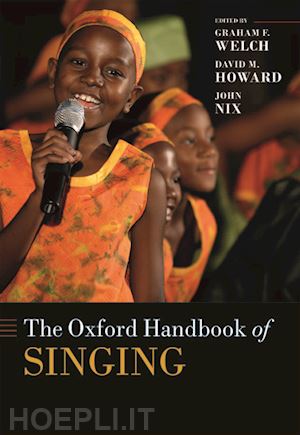Graham Welch PhD has held the UCL Institute of Education (formerly University of London) Established Chair of Music Education since 2001. He is a Past President of the International Society for Music Education (ISME) (2008-2014) and elected Chair of the internationally based Society for Education, Music and Psychology Research (SEMPRE). He holds Visiting Professorships at universities in the UK and overseas and is a former member of the UK Arts and Humanities Research Council (AHRC) Review College for Music (2007-2015). Publications number approximately three hundred and fifty and embrace musical development and music education, teacher education, the psychology of music, singing and voice science, and music in special education and disability. David M Howard was elected Fellow of the Royal Academy of Engineering in 2016 and in that same year he became the Founding Head of the new department of Electronic Engineering at Royal Holloway, University of London, where he has set at its heart the principle of nurturing creativity in the context of group working for practical projects in each of the first two years. This is supported with a creative thinking space, prototyping lab and fabrication lab with 3-D printers and laser cutting machines for realising prototype designs. He has been Editor-in-Chief of Logopedics, Phoniatrics, Vocology and is on the Editorial Boards of Journal of Voice, Forensic Linguistics, Organised Sound, International Journal of Research in Choral Singing and Journal of Interdisciplinary Music Studies. In 2014, David was made an Honorary Member of the Association of Croatian Choral Directors in which guise he acted as a judge for the International choir competition in %Sibenik in Croatia in May 2018. John Nix has a bachelor of music (voice performance, University of Georgia), a master of music education (arts administration, Florida State University), a master of music (voice performance, University of Colorado), and a certificate in vocology (University of Iowa). He is professor of voice and voice pedagogy at the University of Texas-San Antonio, and has an adjunct appointment in the Department of Speech Language Pathology at the University of Texas Health Sciences Center in San Antonio. His mentors include Barbara Doscher (singing, pedagogy) and Ingo Titze (voice science). His students have sung with the Santa Fe, Arizona, Chautauqua, St. Louis, Nevada, Omaha, and San Antonio opera companies, and two of his current or past students have been master teachers in the NATS Intern Program. In addition to his active voice teaching studio, he performs research in voice pedagogy, literature, and acoustics, having produced 38 published articles and 8 book chapters.











